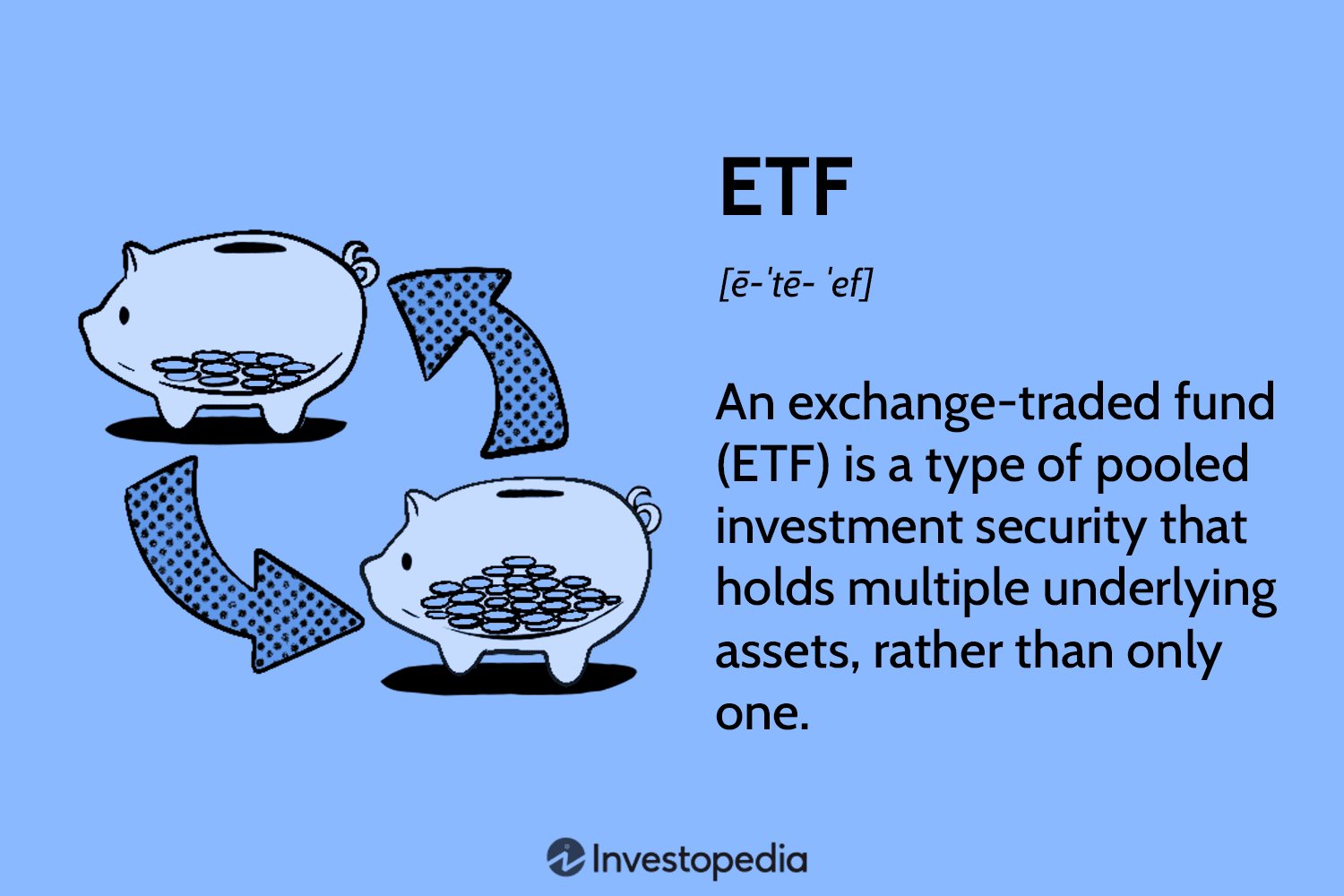Are you curious about what an ETF is and how it can provide tax benefits? Look no further! In this article, we will delve into the world of Exchange-Traded Funds (ETFs) and uncover the advantages they offer when it comes to taxes. Whether you’re a seasoned investor or just starting your journey in the financial markets, understanding the tax benefits of an ETF can be crucial in maximizing your returns. So, let’s dive right in and explore what an ETF is and how it can potentially enhance your tax efficiency.
What is an ETF and its Tax Benefits
Exchange-traded funds, commonly referred to as ETFs, have gained significant popularity among investors in recent years. These investment vehicles offer a wide range of benefits, including diversification, liquidity, and cost-effectiveness. But one aspect that often gets overlooked is the tax advantages that ETFs provide. In this article, we will delve into the world of ETFs and explore their tax benefits in detail.
Understanding ETFs
Before we dive into the tax benefits, let’s first understand what ETFs are. An ETF is a type of investment fund that trades on stock exchanges, just like individual stocks. It represents a basket of securities, such as stocks, bonds, or commodities, and seeks to track the performance of a specific index.
ETFs offer investors the opportunity to gain exposure to a diversified portfolio of assets without directly owning them. When you invest in an ETF, you essentially own a share of the entire portfolio held by the fund. This allows you to achieve a level of diversification that would be challenging to replicate with individual securities.
Tax Efficiency of ETFs
One of the key advantages of ETFs is their tax efficiency. Unlike mutual funds, which can trigger capital gains taxes with every trade, ETFs have a unique structure that minimizes taxable events. Here’s how it works:
In-Kind Creation and Redemption Process
ETFs utilize an in-kind creation and redemption process, which helps to minimize taxable events. When an investor wants to create or redeem units of an ETF, they do so by exchanging a portfolio of securities with the ETF provider. This process is known as the creation and redemption process.
By utilizing this method, ETFs can avoid selling securities in the open market, which would trigger capital gains taxes. Instead, the creation and redemption process allows for the transfer of securities in a tax-efficient manner. This helps to reduce the tax liability for ETF shareholders.
Low Turnover
Another factor that contributes to the tax efficiency of ETFs is their typically low turnover. Since ETFs aim to track a specific index, they have less need to buy and sell securities frequently. This reduces the likelihood of generating capital gains and the resulting tax implications.
On the other hand, actively managed funds tend to have higher turnover as fund managers make buying and selling decisions based on market conditions and investment strategies. This increased turnover can lead to more taxable events and potentially higher tax liabilities for investors.
Tax Benefits for ETF Investors
Now that we understand the tax-efficient structure of ETFs, let’s explore the specific tax benefits that investors can enjoy.
Capital Gains Control
ETF investors have more control over their capital gains compared to traditional fund investors. When you invest in an ETF, you have the flexibility to decide when to sell your shares, potentially timing the realization of capital gains to align with your tax planning strategies.
For example, if you have capital losses in your portfolio that you can use to offset gains, you can choose to sell your ETF shares at a time that maximizes the tax benefit. This level of control allows investors to be more strategic in managing their tax liabilities.
Dividend Reinvestment
ETFs often distribute dividends to their shareholders. However, unlike mutual funds, ETF investors can typically reinvest those dividends automatically without triggering a taxable event.
Many ETFs offer dividend reinvestment programs (DRIPs), allowing investors to use their dividends to purchase additional shares in the fund. This feature allows for compounding returns and deferral of taxes until the investor decides to sell their shares.
Tax Loss Harvesting
ETFs provide opportunities for tax loss harvesting, a strategy employed by investors to offset capital gains with capital losses. When an ETF experiences a decline in value, investors can sell their shares at a loss, generating a capital loss for tax purposes.
These capital losses can be used to offset capital gains in other parts of the investor’s portfolio, reducing their overall tax liability. ETFs, with their intraday liquidity and broad market exposure, offer investors more flexibility in implementing tax loss harvesting strategies.
Tax Considerations for ETF Investors
While ETFs offer numerous tax benefits, it is essential to consider a few key factors when investing:
Capital Gains Distributions
Although ETFs are relatively tax-efficient, they are not entirely immune to capital gains distributions. At the end of each fiscal year, some ETFs may distribute capital gains to shareholders.
Investors should be aware of these distributions and their potential tax implications. It is advisable to consult with a tax professional to evaluate the impact on your tax situation and make informed decisions regarding buying, selling, or holding ETF shares.
Tax Efficiency Varies by ETF
Not all ETFs are created equal when it comes to tax efficiency. Some ETFs may engage in practices that could generate more taxable events, such as frequent trading or tracking an index with high turnover.
Before investing in an ETF, it is crucial to review its prospectus and understand its tax efficiency track record. Additionally, examining the fund’s turnover ratio can provide insights into its potential tax implications.
ETFs offer investors an array of benefits, including diversification, liquidity, and cost-effectiveness. However, their tax advantages are often overlooked. By utilizing an in-kind creation and redemption process, minimizing turnover, and providing control over capital gains, ETFs provide investors with tax-efficient investment opportunities. It is important to consider the specific tax implications and review each ETF’s tax efficiency before making investment decisions. With their unique structure, ETFs continue to be a popular choice among investors seeking both financial growth and potential tax benefits.
Are ETFs tax-efficient?
Frequently Asked Questions
Frequently Asked Questions (FAQs)
What is an ETF and how does it provide tax benefits?
Exchange Traded Fund (ETF) is an investment fund traded on stock exchanges, similar to stocks. ETFs offer tax benefits as they are structured in a way that minimizes potential taxes for investors.
What are the tax advantages of investing in ETFs?
Investing in ETFs provides tax advantages such as tax efficiency, potential tax deferral, and tax control. These benefits arise from the unique structure of ETFs and the way they are managed.
How do ETFs achieve tax efficiency?
ETFs achieve tax efficiency by using in-kind creation and redemption of shares. This allows them to minimize capital gains distributions, reducing the tax burden for investors. Additionally, ETFs generally have lower turnover compared to mutual funds, resulting in fewer taxable events.
What is tax deferral and how does it apply to ETFs?
Tax deferral refers to the ability to postpone taxes on capital gains until the ETF shares are sold. ETF investors can enjoy this benefit as they only incur taxable events when they sell their shares, unlike mutual funds where capital gains distributions can occur annually.
How do ETFs provide tax control?
ETFs provide tax control by allowing investors to choose when to sell their shares, thereby controlling their taxable events. Investors can strategically sell their ETF shares to manage their capital gains and potentially offset them with capital losses.
Are there any tax implications when buying and selling ETFs?
When buying and selling ETFs, investors may be subject to capital gains tax. Capital gains can be either short-term or long-term depending on how long the shares were held. It is important to consider the tax implications when making investment decisions.
Do all ETFs offer the same tax benefits?
Not all ETFs offer the same tax benefits. The tax advantages can vary depending on the specific structure and investment strategy of the ETF. It is important to review the prospectus or consult with a financial advisor to understand the tax implications of a particular ETF.
Are dividends from ETFs taxed?
Dividends received from ETFs may be subject to taxation. The tax treatment of dividends depends on various factors such as whether the dividends are qualified or non-qualified, and the investor’s tax bracket. It is advisable to consult with a tax professional for precise guidance.
Can ETFs help with tax-efficient investing in retirement accounts?
Yes, ETFs can help with tax-efficient investing in retirement accounts such as IRAs or 401(k)s. By utilizing ETFs in these accounts, investors can benefit from the tax advantages without incurring immediate tax liabilities. However, it is important to understand the specific rules and regulations governing retirement accounts.
Final Thoughts
In conclusion, an ETF (Exchange-Traded Fund) is a popular investment vehicle that offers numerous tax benefits. By holding a diversified portfolio of assets, an ETF provides investors with exposure to a wide range of securities. The tax advantages of ETFs are particularly attractive, as they offer potential tax efficiency through the creation and redemption process, minimize capital gains distributions, and allow for tax-efficient rebalancing. Additionally, ETFs typically have lower expense ratios compared to mutual funds, making them a cost-effective investment option. Overall, investors looking for a tax-efficient and diversified investment should consider ETFs and their tax benefits.



